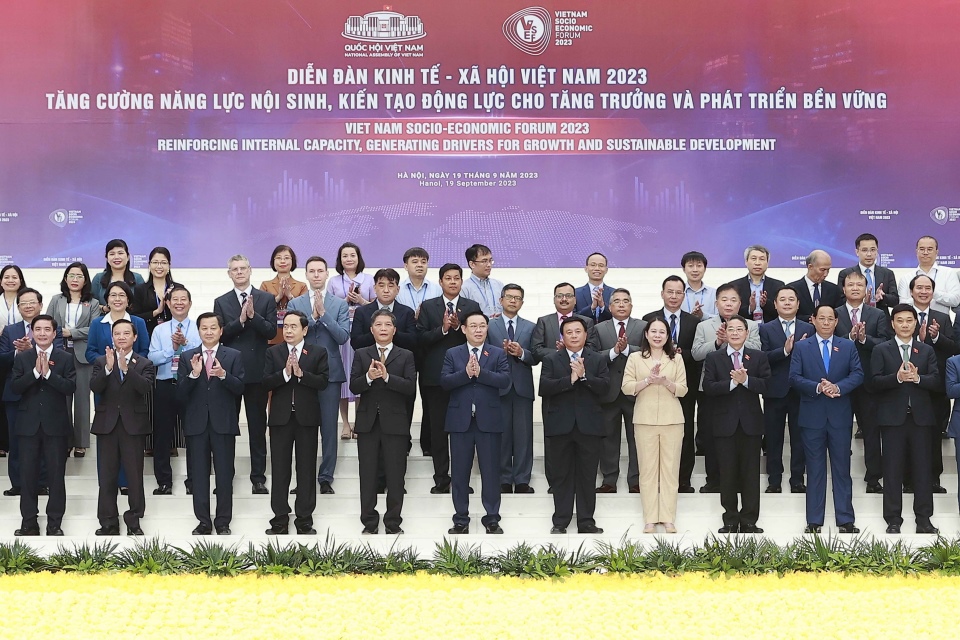HCMC – National Assembly Chairman Vuong Dinh Hue, in his keynote address at the Vietnam Socio-economic Forum 2023 today, September 19, urged participants to look for solutions to the country’s economic challenges.
He called for in-depth discussions of Vietnam’s economic woes, and solutions for these challenges, at a time when the economy is navigating the difficult economic conditions, albeit some recent signs of recovery.
The service sector has seen an uptick, with retail sales of goods and services increasing by roughly 10%. International visitor arrivals are on track to exceed the annual target, and expected to reach eight million. Key industrial areas, including Haiphong City, Bac Ninh Province, and HCMC, have either rebounded or sustained high growth.
However, the nation’s economic growth rate in the first half of the year stood at 3.72%, its lowest in nearly 12 years. This sluggish performance exerts pressure on the gross domestic product (GDP) growth in the rest of the year, making the targets for 2023 and the strategic period up to 2030 increasingly tough to attain.
Exports have edged down by 10% compared to the same period last year, the steepest drop in over a decade. Major export commodities, such as phones, phone components, and textiles, continue to face downturns.
Major export markets, including China, the U.S. and South Korea, are either shrinking or showing minimal growth. However, the trade surplus has increased due to a decline in imports of raw materials, indicating a continued slowdown in domestic production.
Meanwhile, some Vietnamese export items, like textiles, are becoming less competitive globally due to high logistics and production costs.
While the FDI sector accounts for about 20% of Vietnam’s GDP and nearly 74% of total export value, the attraction of such investments has not fared well. Registered capital decreased in the first six months of the year. Since July, there has been a rebound in FDI, backed by major projects from South Korea and Singapore.
Yet, in general, attracting FDI remains hard, especially when it comes to large-scale, high-tech projects that have a deep and broad spillover effect and contribute significantly to socio-economic development. Increasing imports by the FDI sector highlight limited connectivity and production capacity within the country.
Public investment, which is considered a pivotal driver for 2023’s economic growth, has not met expectations. Despite various policies having been in place, the actual disbursement rate from January to August is at 42.35% of the year’s plan, indicating a gap between policy and execution.
The industrial and construction sectors, once the main growth drivers, are no longer at the forefront, with the processing and manufacturing industry posting lower growth. The first quarter saw a decrease of 0.49%, and the growth rate in the first six months was low, at only 0.44%. The Index of Industrial Production (IIP) in the first eight months slipped by 0.4%, in stark contrast to the same period last year when it grew by 10.1%.









